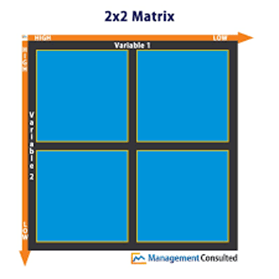Tim Marsh discusses two vital issues about learning and analysis which have implications for safety and health.
 If you give orders that lead to the death of children for personal, financial or merely political aims then you’re a monster. ‘End of’ as the local youth would have it and, frankly, no fate is too cruel. (And yes, Tony and George are free and fine and a child living under a dictatorship is just as innocent as one living in a fledgling democracy but this isn’t about that, hugely difficult, comparison). This article is rather about the thought process behind the large number of considered and thoughtful articles that have sought to address: why is this horror happening at all?
If you give orders that lead to the death of children for personal, financial or merely political aims then you’re a monster. ‘End of’ as the local youth would have it and, frankly, no fate is too cruel. (And yes, Tony and George are free and fine and a child living under a dictatorship is just as innocent as one living in a fledgling democracy but this isn’t about that, hugely difficult, comparison). This article is rather about the thought process behind the large number of considered and thoughtful articles that have sought to address: why is this horror happening at all?
We’ve covered one why already but the others aren’t the focus of the article. Instead, it addresses two vital issues about learning and analysis which have implications for safety and health. The first is that we’re hard wired not to consider the other’s point of view and the second a simple but powerful technique that helps with this – especially when things get contentious and political, and emotions are running high.
A previous article covered the ‘fundamental attribution error’ using road rage as an example. (Essentially that when it’s us that’s caused the problem, we’re aware of all the contextual issues plus a few excuses – when it’s someone else there just an idiot). This isn’t just us being self-centred and biased it’s also a manifestation of our hard wiring to seek what we’re looking for even when we think we’re looking at the ‘other side of the argument’. It directly impacts on our tendency to default to blame and we know well that any unjust blame is the surest way to undermine trust, the psychological contract and engagement and empowerment.
Darren Brown gives an excellent example of this automatic bias in his book ‘Tricks of the Mind’.
 Four cards are laid out and have either the letter A or the letter D on one side and the number three or the number seven on the other. The challenge is to ask which cards need to be turned over to check whether a rule, about to be put forward, is true or not. The rule is: If there’s an A on one side, then there is a three on the other. (When used in training, cue the promise of prizes for getting it right quickly and the switching on of the countdown clock to add some time pressure…).
Four cards are laid out and have either the letter A or the letter D on one side and the number three or the number seven on the other. The challenge is to ask which cards need to be turned over to check whether a rule, about to be put forward, is true or not. The rule is: If there’s an A on one side, then there is a three on the other. (When used in training, cue the promise of prizes for getting it right quickly and the switching on of the countdown clock to add some time pressure…).
The first voice will shout A (of course) and the next voices (99 times out of a hundred) will shout three – as we seek to check and then double check…
Actually, neither turning over the D nor the three tells you anything helpful. (Most obviously, whether the other side of the D is three or seven is not relevant, of course, as were talking about A’s. However, less obviously, nor does turning over the three. It disproves nothing about a rule which I’ll reword as ‘there’s always a three on the other side of an A’. (So: turning over the three and finding a D tells us nothing at all about A’s).
However, turning over the seven and finding an A disproves the rule. The best answer is A and seven. (I’ve seen some very clever people take an hour or more to get their head around this one so if you are you’re in the majority!).
In short, this Derren Brown example makes the point that looking at the same thing from two different angles may feel like a double check bit is not the same thing as looking at it from the other side.
The two-by-two Matrix
 When filling in a two-by-two matrix that considers the strengths and weaknesses of two opposing views we find that filling in the ones we agree with is easy. My strengths and your weaknesses won’t take me very long at all. My weaknesses and your strengths will take much more work, but like most things in life, you get reward for the effort. This is why we need to undertake walk and talks with an open mind. Ideally, pro-actively, before anything has gone wrong and when defensiveness is minimised. Asking ‘why?’ curiously about any issues seen or raised and assuming that, given half a chance, the front line is the solution and not the problem.
When filling in a two-by-two matrix that considers the strengths and weaknesses of two opposing views we find that filling in the ones we agree with is easy. My strengths and your weaknesses won’t take me very long at all. My weaknesses and your strengths will take much more work, but like most things in life, you get reward for the effort. This is why we need to undertake walk and talks with an open mind. Ideally, pro-actively, before anything has gone wrong and when defensiveness is minimised. Asking ‘why?’ curiously about any issues seen or raised and assuming that, given half a chance, the front line is the solution and not the problem.
To loop back to where we started, however, it’s very easy to get it wrong if you’re overconfident, deluded or surrounded by people afraid to suggest you’re making a huge mistake. (In this case that your opponents are stronger, braver, prouder and more united than you thought they were – and lots of money ‘invested’ in state-of-the-art arms and, crucially, logistical support infrastructure is actually in Swiss (and UK) bank accounts.
Conclusion
All that being said, and with several thoughtful and informed ‘both sides’ articles about history and realpolitik read and (I think) understood… I’d like to finish by misquoting a famous song: I’ve looked at this from both sides now, from give and take and still somehow… he looks like a total bully and monster to me. After all we espouse a just culture – not a no blame one.
Read more from Tim in his monthly SHP blog series…
Read more feature content from Tim, here.
Why should you subscribe to the SHP newsletter?
Do you want the very latest health and safety news, product launches, job listings and expert opinions sent straight to your inbox daily?
The SHP newsletter is essential reading – sign up today to get your hands on all this!

 If you give orders that lead to the death of children for personal, financial or merely political aims then you’re a monster. ‘End of’ as the local youth would have it and, frankly, no fate is too cruel. (And yes, Tony and George are free and fine and a child living under a dictatorship is just as innocent as one living in a fledgling democracy but this isn’t about that, hugely difficult, comparison). This article is rather about the thought process behind the large number of considered and thoughtful articles that have sought to address: why is this horror happening at all?
If you give orders that lead to the death of children for personal, financial or merely political aims then you’re a monster. ‘End of’ as the local youth would have it and, frankly, no fate is too cruel. (And yes, Tony and George are free and fine and a child living under a dictatorship is just as innocent as one living in a fledgling democracy but this isn’t about that, hugely difficult, comparison). This article is rather about the thought process behind the large number of considered and thoughtful articles that have sought to address: why is this horror happening at all? Four cards are laid out and have either the letter A or the letter D on one side and the number three or the number seven on the other. The challenge is to ask which cards need to be turned over to check whether a rule, about to be put forward, is true or not. The rule is: If there’s an A on one side, then there is a three on the other. (When used in training, cue the promise of prizes for getting it right quickly and the switching on of the countdown clock to add some time pressure…).
Four cards are laid out and have either the letter A or the letter D on one side and the number three or the number seven on the other. The challenge is to ask which cards need to be turned over to check whether a rule, about to be put forward, is true or not. The rule is: If there’s an A on one side, then there is a three on the other. (When used in training, cue the promise of prizes for getting it right quickly and the switching on of the countdown clock to add some time pressure…). When filling in a two-by-two matrix that considers the strengths and weaknesses of two opposing views we find that filling in the ones we agree with is easy. My strengths and your weaknesses won’t take me very long at all. My weaknesses and your strengths will take much more work, but like most things in life, you get reward for the effort. This is why we need to undertake walk and talks with an open mind. Ideally, pro-actively, before anything has gone wrong and when defensiveness is minimised. Asking ‘why?’ curiously about any issues seen or raised and assuming that, given half a chance, the front line is the solution and not the problem.
When filling in a two-by-two matrix that considers the strengths and weaknesses of two opposing views we find that filling in the ones we agree with is easy. My strengths and your weaknesses won’t take me very long at all. My weaknesses and your strengths will take much more work, but like most things in life, you get reward for the effort. This is why we need to undertake walk and talks with an open mind. Ideally, pro-actively, before anything has gone wrong and when defensiveness is minimised. Asking ‘why?’ curiously about any issues seen or raised and assuming that, given half a chance, the front line is the solution and not the problem.